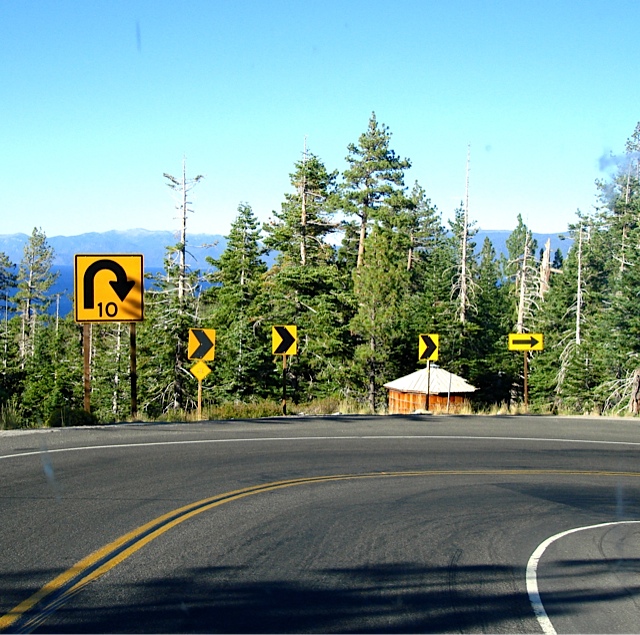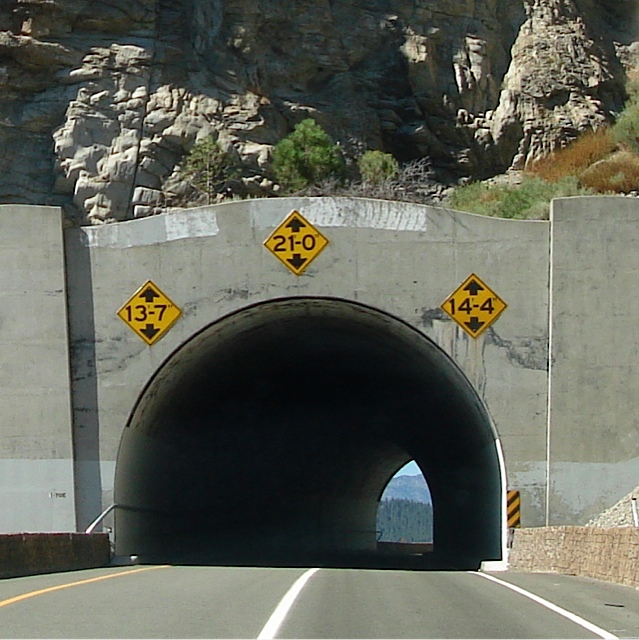
Lake Tahoe’s roads are winding, curved, and dangerous even in the summer. One wrong move and you’ll be dead. Being brave is like navigating this road.
Bravery isn’t about the presence of a situation; it’s about what you do in a situation. Bravery is about how you face a situation:
a. Face to face: Meet with bravery – meet every situation with guts, nerve, pluck, daring audacity.
b. Face off: Start with bravery – begin, commence, open, initiate the quality of courage.
c. Face down: Confront with bravery – challenge, defy, tackle, deal with the situation.
d. Face up: Admit with bravery – confess, come clean, acknowledge the real problem.
e. Face the music: Accept with bravery – take on, endure what you have been given to face.
f. Get out of someone’s face: Leave with bravery – give up, defer what is not yours to cope with.
g. Save face: Preserve with bravery – uphold, sustain, maintain the essence of who you are.
h. Fly in the face: Act with bravery – proceed, perform, function no matter what else is happening.
i. Face the light: Look forward to with bravery – anticipate, hope for, expect what is salutary for you.
Your mission might bring you face to face with danger or pain. The danger can be as small as  realizing you have forgotten to get an important paper filed — a face up, face the music, save face experience. The pain can be as great as finding out your business partner has just been killed in a plane crash – a face-to-face experience with tragedy. Whatever the situation, you can be brave – courageous, valiant, heroic, bold, daring, fearless, plucky — and continue to be your best. This is all bravery is asking you to do – bring the best of who you are to the situation and not let anything eclipse this person. Bravery will get you around those dangerous curves and situations, and safely transport you and your mission forward.
realizing you have forgotten to get an important paper filed — a face up, face the music, save face experience. The pain can be as great as finding out your business partner has just been killed in a plane crash – a face-to-face experience with tragedy. Whatever the situation, you can be brave – courageous, valiant, heroic, bold, daring, fearless, plucky — and continue to be your best. This is all bravery is asking you to do – bring the best of who you are to the situation and not let anything eclipse this person. Bravery will get you around those dangerous curves and situations, and safely transport you and your mission forward.
Quote
“I learned that courage was not the absence of fear, but the triumph over it. The brave man is not he who does not feel afraid, but he who conquers that fear.
- Nelson Mandela, South African activist, peacemaker, past president
Activity
Activity: The Bravery Face Off
Materials: Paper and pen or pencil
Time: Ten minutes to write and ten minutes per person to discuss your results.
Instruction:
1. List several unresolved past, present, or future problems you are experiencing.
2. Choose one of these problems to use in the following exercise.
3. Answer the following questions to describe how you will bravely face this problem:
a) Face to face: What is the problem? Really? Not just the outward appearance of the problem, but the underlying, true root of the problem – the “real” problem?
b) Face off: Who are the “characters” or other people involved with this problem?
c) Face down: What will you do to boldly confront this problem? (The Serenity Prayer: Courage to change the things which should be changed.)
d) Face up: Admit the things you cannot change regarding this problem. What are the things you are trying to change, but you cannot change? How will you stop trying to change the things you cannot change? (The Serenity Prayer: Wisdom to accept with serenity the things that cannot be changed.)
e) Face the music: What consequences will you need to accept in order to face this problem – even if they aren’t the outcomes, results, effects, or conclusions you want(ed)?
f) Get out of someone’s face: What can you do to leave the detrimental, negative, destructive aspects of this problem and take a healing, hopeful path through and out of it?
g) Save face: What can you do to end humiliation or embarrassment and embrace humility and honor regarding this problem? This includes your own or any one else’s humiliation and/or embarrassment. (Stop humiliating or embarrassing, or stop being humiliated or embarrassed.)
h) Fly in the face: How will you defy the belief that you cannot be brave in the midst of this problem – even if it seems impossible for any one to prosper, be successful, do well, triumph, or flourish? (A synonym of defy means brave.)
i) Face the light: What good will you look forward to in the future – a good that will mitigate the effects of this problem? (Mitigate means to lessen in force, intensity, or severity.)
4. What did you learn from doing this activity? How will doing this activity help you be brave in the future?
Affirmation
I am brave so I can …… We’d like to hear your story about being able to face danger and pain. Write your story below.
- « Previous lesson: A healthy eater: I eat to experience optimal health
- » Next lesson: Free from addiction: I live in a way that enhances my well being